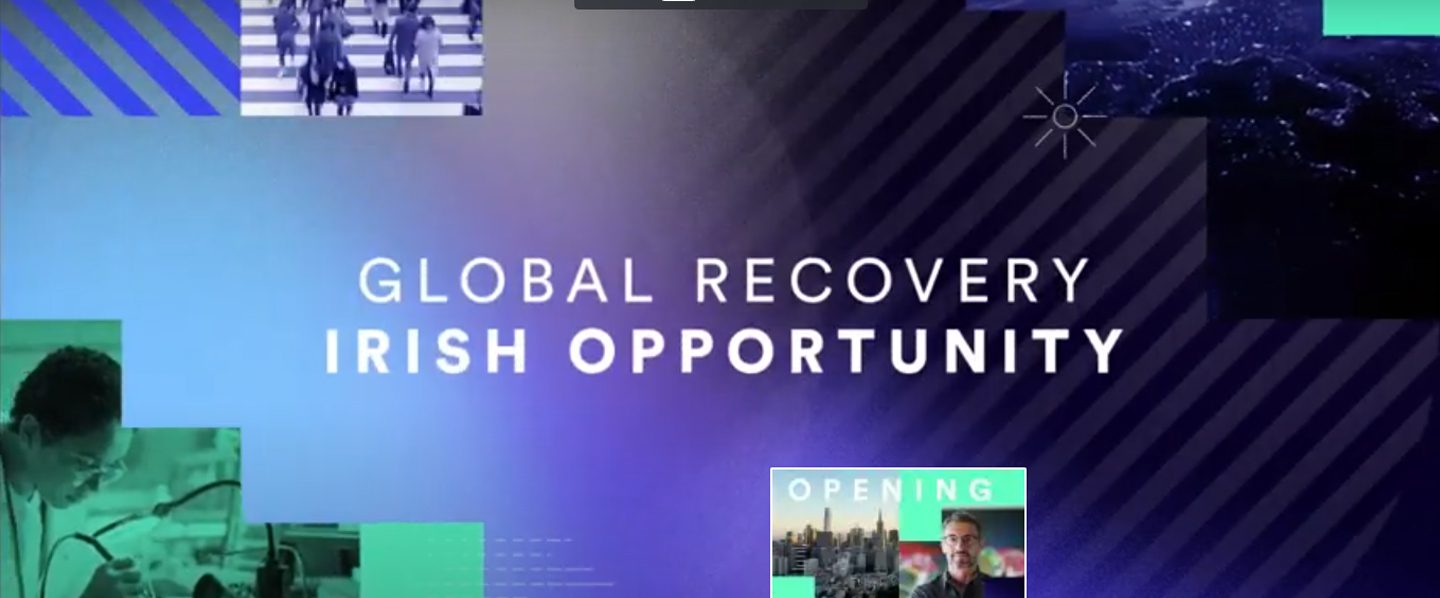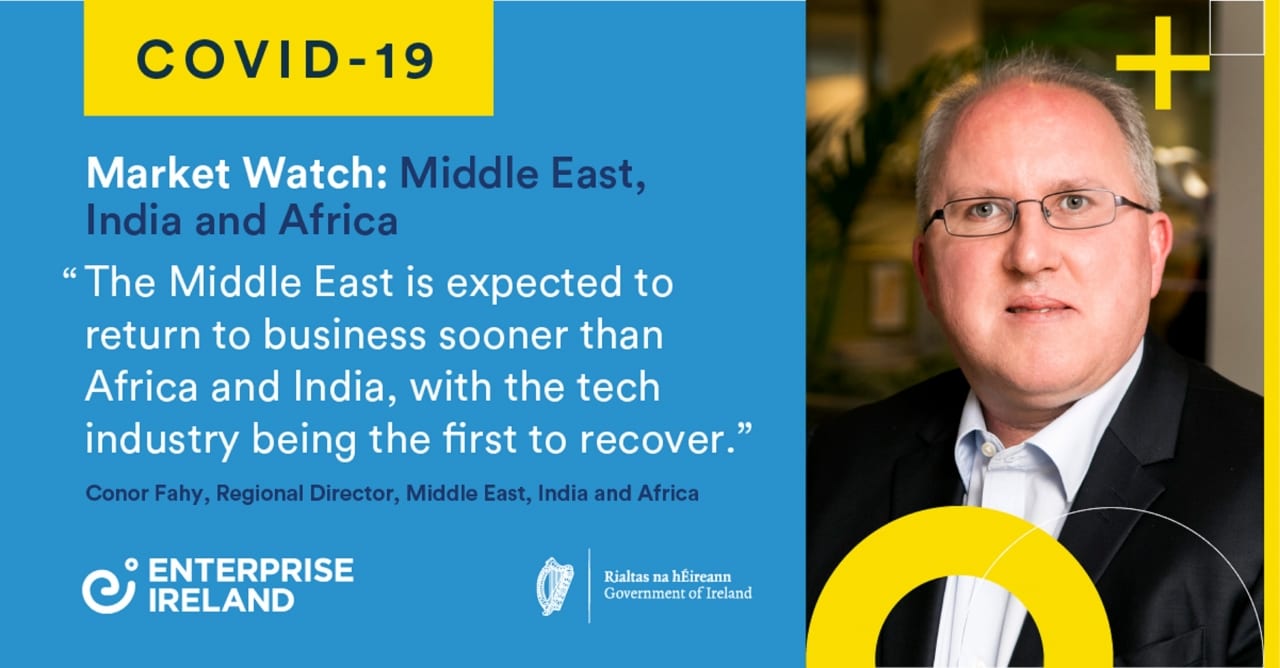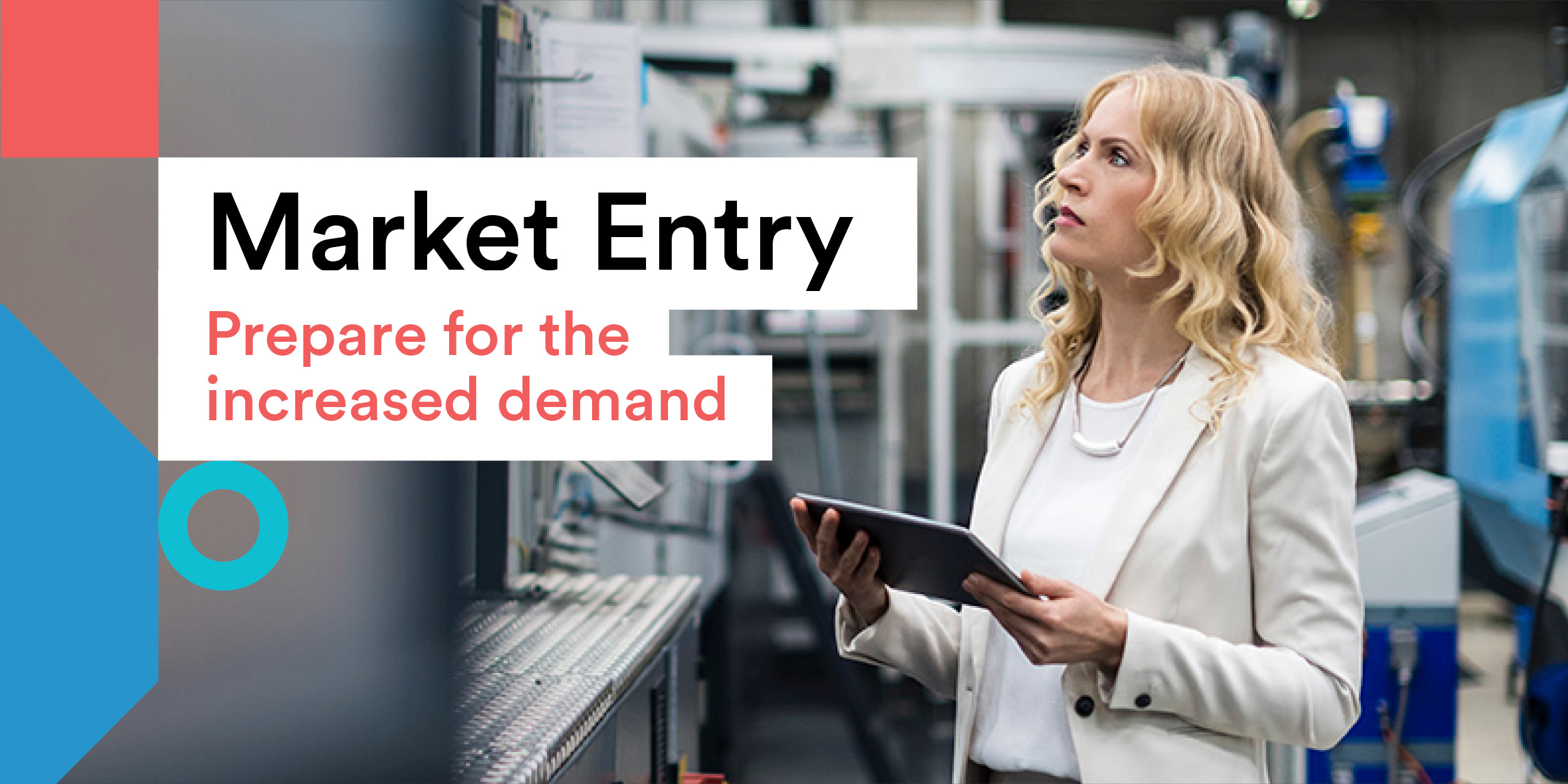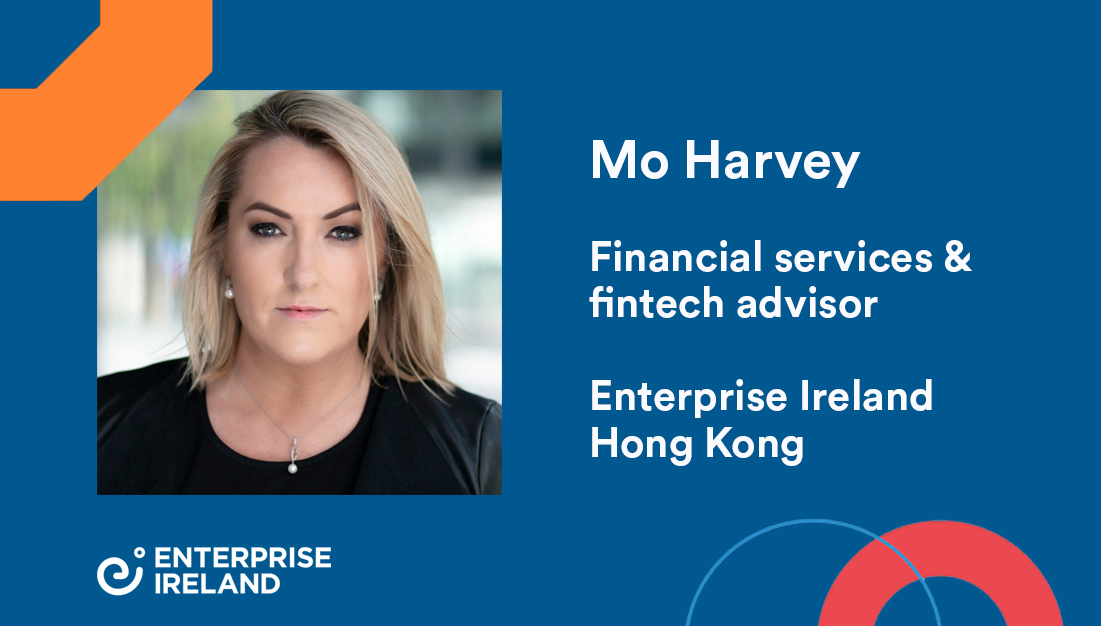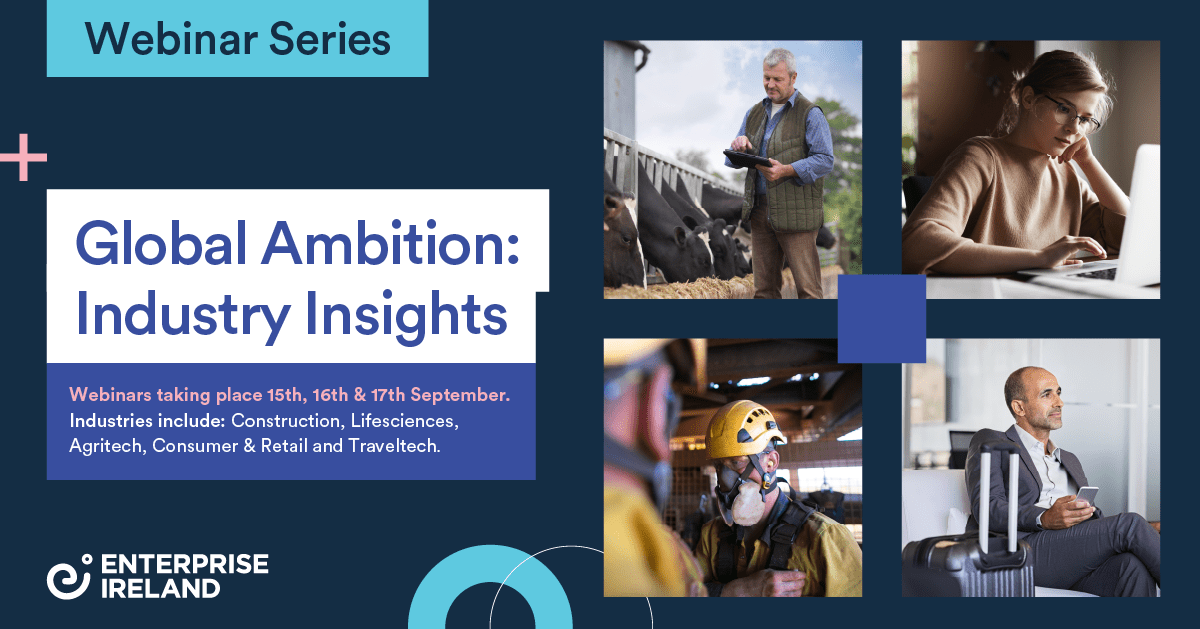2021 virtual trade mission – Reaching a global audience
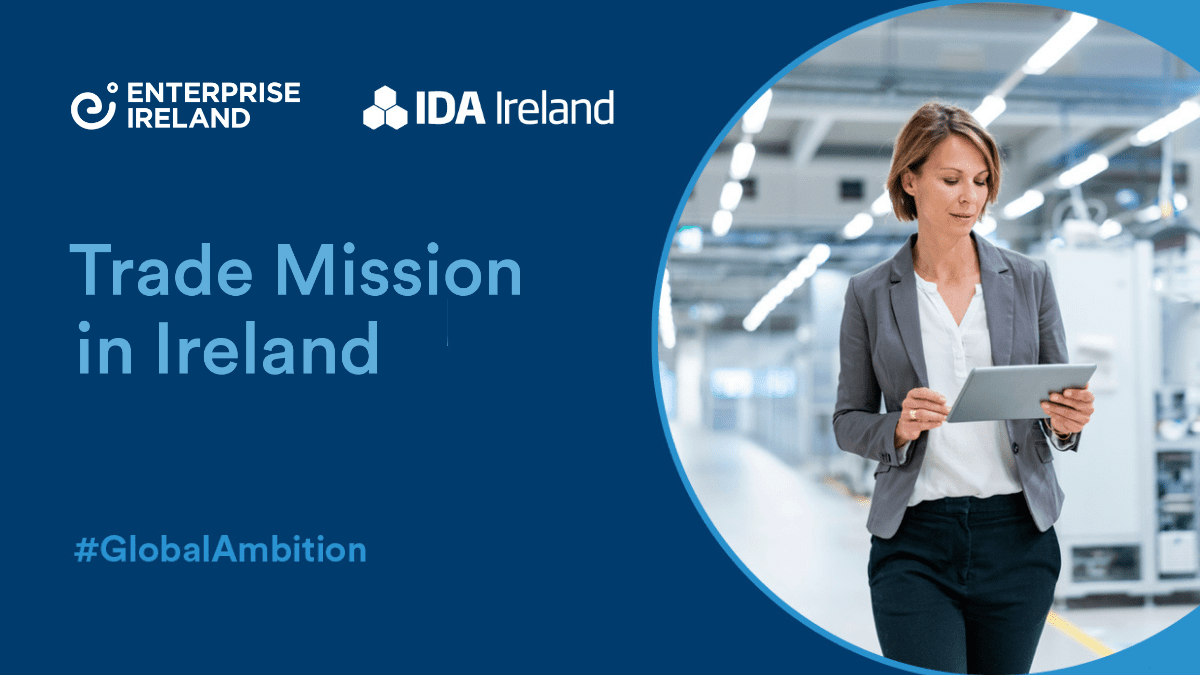 In the not-too-distant past, companies wishing to establish a successful business relationship with firms overseas, would have relied heavily on international travel and perhaps an office or ‘boots-on-the-ground’ in the country in question.
In the not-too-distant past, companies wishing to establish a successful business relationship with firms overseas, would have relied heavily on international travel and perhaps an office or ‘boots-on-the-ground’ in the country in question.
But these days, there is also another option as there are many international companies located across Ireland who are more than willing to do business with local businesses – and Gerard, Fenner, Senior Executive of Global Sourcing for Enterprise Ireland, says his team can help to bring Irish SMEs and multinational firms together.
“The combination of modern technology and accessible travel has made the world a much smaller place and opened up a myriad of global opportunities for Irish businesses,” he says.
Enterprise Ireland and IDA Ireland collaboration
“But travelling to or even selling out of this country isn’t the only means for companies at home to expand into the international market as there are hundreds of multinationals right here in Ireland, which are willing and able to engage with indigenous firms. Since its formation in 2012, the Enterprise Ireland Global Sourcing team has been working with colleagues in IDA Ireland to introduce Irish owned businesses to international firms to respond to their specific requirements.
“Working with companies across every sector, including pharma, medtech, ICT, engineering, financial services and energy, our team helps to develop relationships between Irish companies who are seeking to sell their product or service and multinational firms who wish to purchase same – so our particular focus is on providing sales opportunities and partnerships between Enterprise Ireland client companies and Ireland-based multinationals, predominantly IDA firms.”
According to Fenner, there are many benefits to both the seller and the buyer in these business relationships and apart from supporting industry at home, it can also lead to opportunities in export markets – and winning a contract with a multinational gives a scaling Irish company a valuable reference site for its move into export markets.
“We have found that one of the most productive means of securing relationships between Irish firms and multinationals based here is by means of events where introductions can be made, and sellers can have pre-arranged face to face meetings with potential buyers,” he says.
Developing international relationships
“In 2014 we organised the first Trade Mission in Ireland. The event was minister led and took place in various regional locations across the country over the course of a couple of days – and since then, it has taken place every year, apart from 2020, due to lockdown restrictions. It has always garnered a lot of interest and helped to develop contracts and future relationships.”
So it seems that trade missions have long been an effective means of introducing businesses to prospective clients, but since the onset of the pandemic, industry across every sector has had to pivot online and learn how to do business in a virtual world.
Online introductions and meetings
As current guidelines continue to prevent physical events of this nature taking place, this year, on May 12th, the first ever virtual Global Sourcing Trade Mission became the alternative.
Launched by the Tánaiste and Minister for Enterprise, Trade and Employment, Leo Varadkar, the event proved as popular as ever with 65 multinationals and 240 Irish companies registered with over 350 meetings. And according to Gerard Fenner, the online system was popular with both the variety of different international firms and indigenous companies looking to set up new business relationships.
“When the Enterprise Ireland companies registered on the event platform, they provided some company information about what they do and what their offer is, and this allowed suppliers to search through this information and put in a request for a meeting,” says the international trade expert. “Similarly, the supplier was also able to request a meeting with a buyer in order to pitch a product or service.
“Although these 15-minute meeting slots were different to how things normally work at a physical trade mission, it proved to be very successful with feedback from both sides indicating their positivity – and early signs show the possibility of new business relationships and further revenue to add to the €32 million in contracts which have been secured from these trade missions.”
The Global Sourcing Team lead says there was also the added positive bonus of no travel, which meant that the multinational could bring in individuals from different areas of their business to meet potential suppliers – so rather than just one representative attending the event, firms could bring in someone from finance or with technical expertise to liaise directly with companies pitching a particular service.
“Overall it was a great success and we have run smaller online events similar to this over the past year and many multinational firms have come back to us to say they were impressed with the fact that they got to meet so many different businesses,” he says.
“So, the trade mission, whether it takes place at a venue or online, is an important platform for raising awareness about the capabilities of innovative Irish SMEs and helping them to establish future business relationships. And given the interest in this year’s event, despite the difficulties surrounding the current global situation, the future looks bright.”



